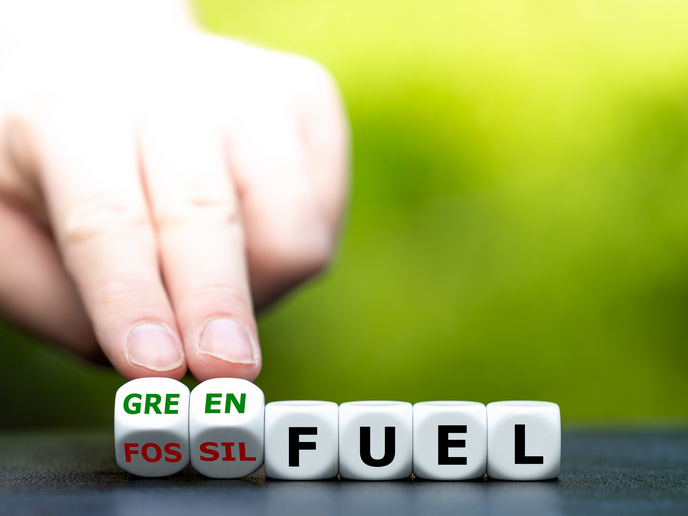Innovative technologies provide high performance, low-emission biofuel
Drop-in fuels are key to bioenergy development. Derived from biomass, they can be blended with fossil fuels and even replace them without modification to existing equipment. Funded by the EU, the REDIFUEL(opens in new window) project has developed a drop-in fuel with the same name. After exploring several biomass options for REDIFUEL, the team selected wood residues as the most promising large feedstock for their research. Completely renewable, REDIFUEL is designed to help the EU reach its target for reduced greenhouse gas (GHG) emissions by 2050. According to project coordinator Thorsten Schnorbus: “REDIFUEL’s ambition is to develop new technologies, solutions and processes to reach high conversion efficiencies for fleet compatible renewable fuel production.” The road transport sector contributes the majority of GHG emissions. While electric vehicles will help to alleviate the problem, heavy transport will continue to rely on liquid fuels for some time to come. Developing biofuels(opens in new window) with low GHG emissions is not only a sustainable solution; it is an imperative one.
A cascade of innovative processes
The process to transform a feedstock into a high-combustion, low-emission biofuel involves many steps. The initial feedstock must be gasified, pollutants must be removed, and then the gases must undergo the Fischer-Tropsch(opens in new window) synthesis. The production of REDIFUEL uses an innovative catalytic process developed by the Spanish National Research Council (CSIC). Commonly the implementation of the Fischer-Tropsch process requires large facilities and massive quantities of biomass. However, the compact design of the reactor developed by the partner, German-based e-fuel company INERATEC, allows for high efficiency and fine-tuned control of the process. The second key stage to developing REDIFUEL involves transforming the high share of olefins, a type of hydrocarbon molecule implicated in GHG emissions, into bio-alcohols using the processes of hydroformylation(opens in new window) and hydrogenation(opens in new window). The success of the REDIFUEL project in this regard led to a high share of bio-alcohols, a key factor in meeting EN590 fuel standards(opens in new window).
A well-to-wheel winner in the making
Through the application of innovative technologies, REDIFUEL meets many of the criteria set out in the project. It is a low-emission, high-performance fuel that can replace up to 100 % of petroleum-derived diesel. Well within the requirements of EN590 fuel standards, REDIFUEL can be put into diesel engine vehicles and distribution sites without modification of infrastructure or software. Because REDIFUEL can be produced using a variety of feedstocks (including green hydrogen and air captured CO2), it has the potential to provide a sustainable solution over the long term. The technical innovations that produced REDIFUEL can also be used in a PtX-based(opens in new window) production strategy, converting renewable electricity into biofuel. As yet, the production of REDIFUEL does not reach the cost-competitive target set by researchers. The catalytic process produced the desired high share of carbon-rich olefins. However, this result was paired with a low productivity rate, and target productions in the pilot stage could not be met. Further research is necessary to make REDIFUEL cost-competitive by 2030, the target date identified by the researchers. Regardless of the challenges posed, the REDIFUEL team has demonstrated an impressive degree of innovative problem solving that will no doubt yield breakthroughs in the near future. According to Schnorbus: “The environmental and societal aspects are taken into account by a biomass-to-wheel(opens in new window) analysis showing that the overall CO2 reduction compared to fossil fuels is tremendous and beyond that of conventional biodiesel.” A low-emission and high-performance biofuel is just what is needed for heavy transport in Europe, and REDIFUEL delivers.







